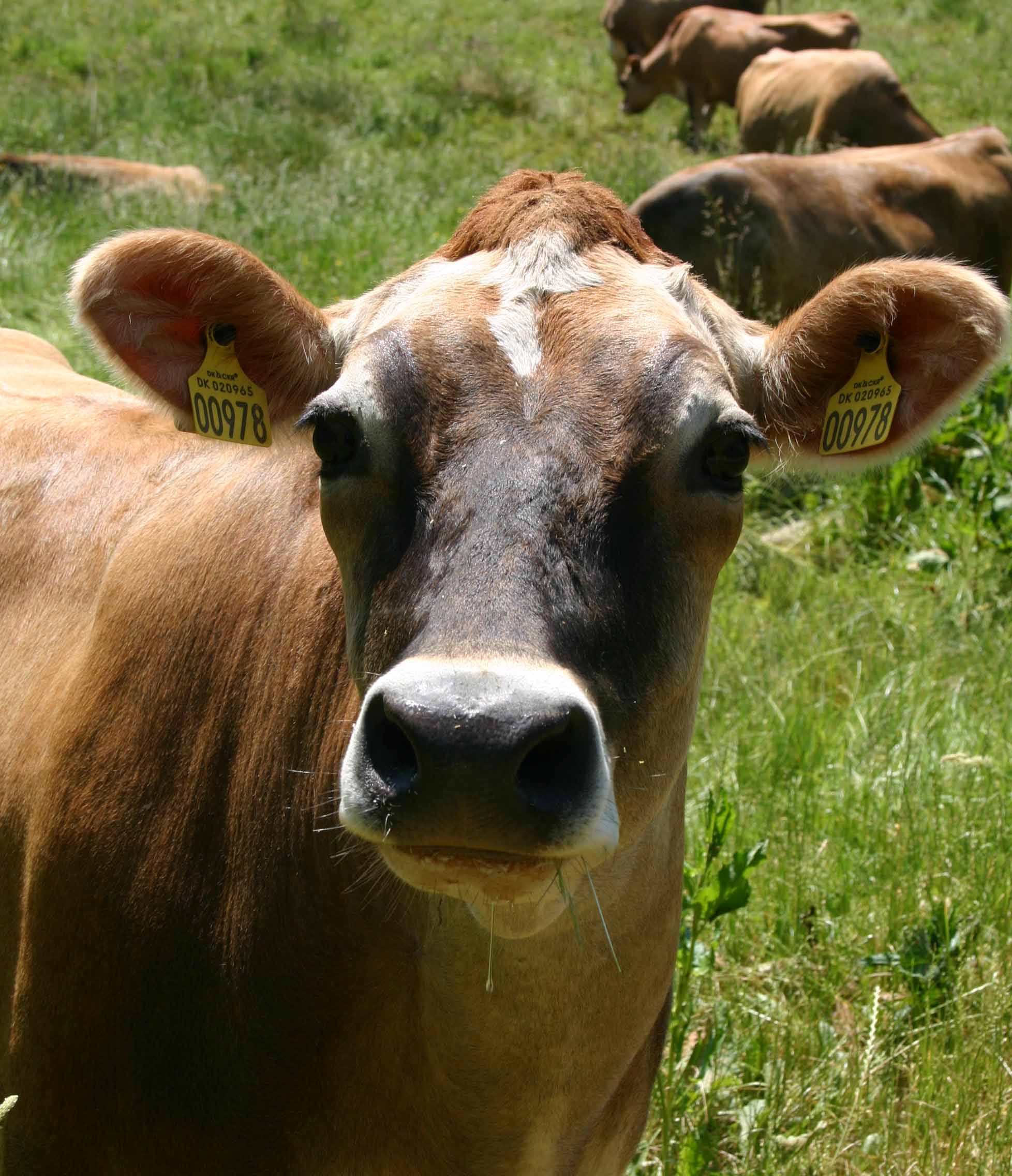Nordic cattle breeds to be given a genetic boost
The relatively small population sizes of the dairy breeds Jersey and Nordic Red Cattle in the Nordic countries pose challenges in using genomic selection to increase genetic progress. A new scientific project aims at improving the methodology using in genomic prediction. Animal health, welfare and production will benefit.

Modern technology has revolutionized dairy cattle breeding. Based on a small blood or tissue sample it is possible to get a “snapshot” of the genetic makeup (genotype) of an animal before it is selected for breeding. A new project led by Aarhus University aims to develop the methodology so the technology can also be used on the Jersey and Nordic Red Cattle populations in Denmark, Sweden and Finland.
Access to thousands or even millions of genetic markers in each animal has given a huge boost to the annual genetic gain in Holstein cattle with increases in genetic gains of 50-100 percent. The statistical models for predicting genomic breeding values have been based on a reference population of genotyped bulls that has been progeny tested based on large groups of daughters from commercial herds. The size of the reference population is very important for the accuracy of genomic selection and thereby on the efficiency of genomic selection. For the worldwide Holstein cattle population, this has led to collaboration such as EuroGenomics, where reference populations are pooled across the participating countries.
The situation is somewhat different for the Nordic populations of Jersey and Nordic Red Cattle. The populations of these dairy breeds are much smaller. This means that there are fewer progeny tested bulls to be used as the reference population. . In addition, because these breeds are specifically Nordic, there is limited potential for international collaboration outside the Nordic countries.
In a new three-year project supported by the Danish National Advanced Technology Foundation, Postdoc Hongding Gao from Center for Quantitative Genetics and Genomics, Aarhus University will collaborate with Nordic Cattle Genetic Evaluation (NAV) and Viking Genetics to develop models that can be used in genomic selection of Jersey and Nordic Red Cattle in Denmark, Sweden and Finland.
- Since there are not as many breeding bulls in the Jersey and Nordic Red populations, the trick will be to gather genomic information as possible in other ways. We will therefore use information from both bulls and cows from herds in Denmark, Sweden and Finland, explains Hongding Gao.
Hongding Gao will use the data gathered on the genotypes of the cows to develop methodology for a prediction model based on experience from the prediction models for Holstein. Since the populations in the three Nordic countries are slightly different from each other Hongding Gao will develop different prediction models.
- We will need to gather a large amount of data to ensure that the prediction models are accurate, says Hongding Gao. Once the prediction models are implemented they will benefit Jersey and Nordic Red Cattle breeding in the Nordic countries greatly.
The goal of the Nordic dairy cattle breeding is to optimise selection for several traits with emphasis not only on production but also on animal welfare.
- With the powerful tool of genomics and accurate prediction models the Nordic dairy cattle breeds can stay competitive, says Hongding Gao.
Learn more about genomics at Aarhus University here.
The Danish National Advanced Technology Foundation supports this three-year project with 1.8 million kroner. The total budget is 3.1 million kroner. The project is a collaboration between Aarhus University and Nordic Cattle Genetic Evaluation (NAV). The full name of the project is “Optimizing genomic prediction in Nordic small dairy breeds using all available information”.
For more information please contact: Postdoc Hongding Gao, Department of Molecular Biology and Genetics, e-mail: Hongding.Gao@agrsci.dk, telephone: +45 8715 7931, mobile: +45 6090 9996
